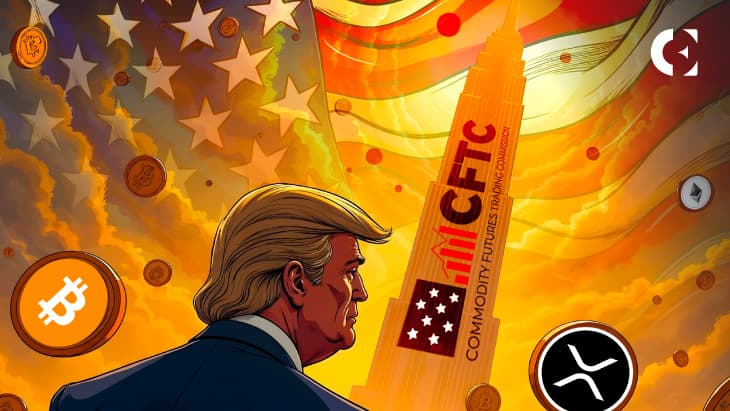Senate Confronts Trump Nominee Over Crypto Oversight, Betting Markets
Senate hearings on November 19 put Michael Selig, President Trump’s nominee to chair the Commodity Futures Trading Commission, under intense scrutiny over his approach to regulating cryptocurrencies and election betting. The confirmation process matters for markets at home and abroad because changes at the CFTC could redraw jurisdictional lines for digital assets and reshape cross border trading and enforcement.

Michael Selig appears before the Senate today as lawmakers probe the nominee’s plans for overseeing a rapidly evolving digital asset landscape and emerging markets that test traditional regulatory boundaries. The hearings are focused on how the Commodity Futures Trading Commission would police crypto market integrity, supervise election betting platforms and adapt if Congress enacts legislation such as the CLARITY Act that would reassign jurisdiction over some digital assets.
Selig arrives with a record on crypto policy and service as chief counsel on related matters, experience that Republicans and Democrats will parse for signs of how industry friendly his chairmanship might be. The White House has signaled an embrace of lighter touch measures for cryptocurrencies and stablecoins, and Selig’s answers are expected to indicate whether the CFTC will pursue greater accommodation of digital asset businesses or move toward stricter oversight intended to protect investors and markets.
The stakes extend beyond domestic policy. The CFTC traditionally oversees futures, swaps and certain derivatives markets, and its posture toward digital assets influences global trading venues, custody arrangements and cross border clearing. If the Senate confirms a chair aligned with the administration’s industry oriented stance, regulators in Europe and Asia will face pressure to adjust or clarify their own frameworks to avoid regulatory arbitrage and to preserve interoperability in transnational markets.
Election betting platforms present a distinct set of legal and ethical dilemmas. Such markets raise questions about market manipulation, information flows and the broader impact on democratic processes. Regulators must weigh free market considerations against electoral integrity and public confidence. The outcome of these hearings will signal how the CFTC might coordinate with other federal agencies to address commercial activity that touches on political events.
Legislative developments are a central subplot. The CLARITY Act and similar bills under discussion in Congress would alter the demarcation between securities and commodities oversight for certain tokens and stablecoins. That potential shift would not only reshape U.S. enforcement jurisdiction, it would prompt international counterparts to reassess equivalence and cooperation agreements. Changes in U.S. law could accelerate efforts by foreign regulators to impose their own standards or to seek harmonized rules through bodies such as the International Organization of Securities Commissions.
Market participants, from institutional traders to fintech startups, will watch the hearings for clues about enforcement priorities, registration expectations and the scope of permissible experimentation. Confirmation of a chair sympathetic to industry preferences could encourage investment into U.S. crypto infrastructure, while a tougher approach may drive some activity offshore even as other jurisdictions tighten rules.
Senate deliberations today are likely to test Selig on practical supervision, cross agency cooperation and how the CFTC would protect consumers and markets without stifling innovation. The confirmation outcome and subsequent regulatory choices will help determine whether the United States shapes a cohesive international regime for digital assets or becomes another arena of regulatory fragmentation.
_0.jpg&w=1920&q=75)
